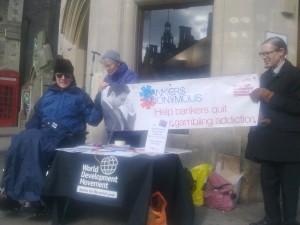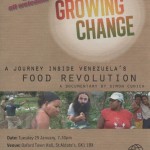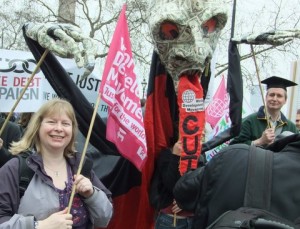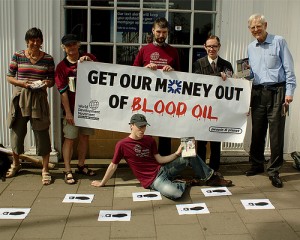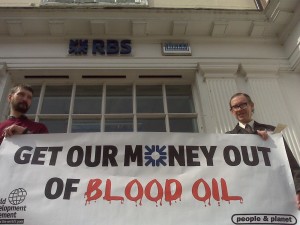WDM campaigners set up stall to help bankers quit gambling: Saturday 6th April
Campaigners from Oxford World Development Movement (WDM) were on Cornmarket Street on Saturday to raise awareness of bankers gambling on food prices.
The tongue-in-cheek “Bankers Anonymous” campaign highlights a serious issue: financial speculation by banks and hedge funds is driving up food prices, sending the cost of basic foods spiralling beyond the reach of millions of the world’s poorest people. It also impacts food prices in richer countries such as the UK.
The World Development Movement is calling for tough controls on food speculation. The Oxford campaigners were asking passers-by to write to their MP calling for tighter regulation. It’s part of a “five-step programme” to stop the gambling.
